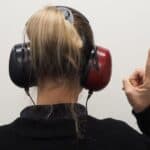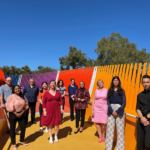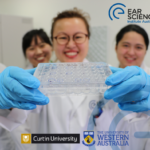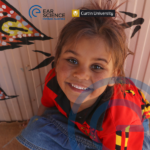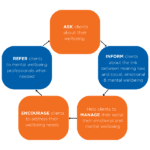We are so pleased to announce the WA Government Future Health Research & Innovation Fund (FHRI) will be supporting the development of a WA-headquartered Australasian biobank to advance genetic therapies for childhood and adult hearing loss.
The Australasian Hearing Registry and Biobank (AHRB) will be the first of its kind in Australia to store tissue related to genetic-associated hearing loss with the goal of advancing personalised care and novel treatments.
Recent breakthroughs in gene therapies have highlighted the potential success of new treatments, and it is with this understanding that we proposed the creation of the WA-based biobank.
The biobank will allow increased access to genetic samples by linking to national and international registries through a network of clinicians, researchers, institutes, and patients. The biobank will enable Ear Science to build research capacity that will lead to improvements in understanding genetic causes of hearing loss and assist with the development of treatments. Recent gene therapy trials overseas have shown life changing results in children who could previously not hear, and we anticipate the biobank catalysing more of this research in Australia.
Commenting on the project, Ear Science CEO Adjunct Associate Professor Sandra Bellekom said;
Ear Science is proud to lead Australia with the first hereditary hearing loss biobank for the nation. The bringing together of researchers, hospitals, clinics and the community is what Ear Science is known for. Thanks to a $500,000 grant from the WA Government’s Future Health Research and Innovation (FHRI) Fund, we can truly tackle the cause and treatment of genetic hearing loss experienced by over 12 million children and adults worldwide.
This $1 million project is a collaborative project, initiated by Ear Science Founder Professor Marcus Atlas with Associate Professor Fred Chen and Dr Samuel McLenachan at Lions Eye Institute, Dr Stephen Rodrigues at Perth Children’s Hospital and Professor Nicholas Pachter at WA Health, as well as other partners in Western Australia and collaborators across other states.
Adjunct Associate Professor Elaine Wong, Head of Hearing Therapeutic at Ear Science Institute Australia said:
“Pioneering gene therapy could restore hearing in patients with profound genetic hearing loss. The approach could help researchers develop therapies for other types of inherited hearing loss. About 155 genes have been identified to be associated with hearing loss, and two-thirds of childhood hearing loss has a genetic cause.”
Dr Samuel McLenachan, Senior Scientist in the Ocular Tissue Engineering Laboratory, Lions Eye Institute said,
“This project leverages the strong collaboration between LEI and Ear Science, including the knowledge and experience of LEI’s WA Retinal Degeneration Study Biobank.”
We applaud the dedication of the WA Department of Health, Office of Medical Research and Innovation for making WA a state of innovation in support of this research.


